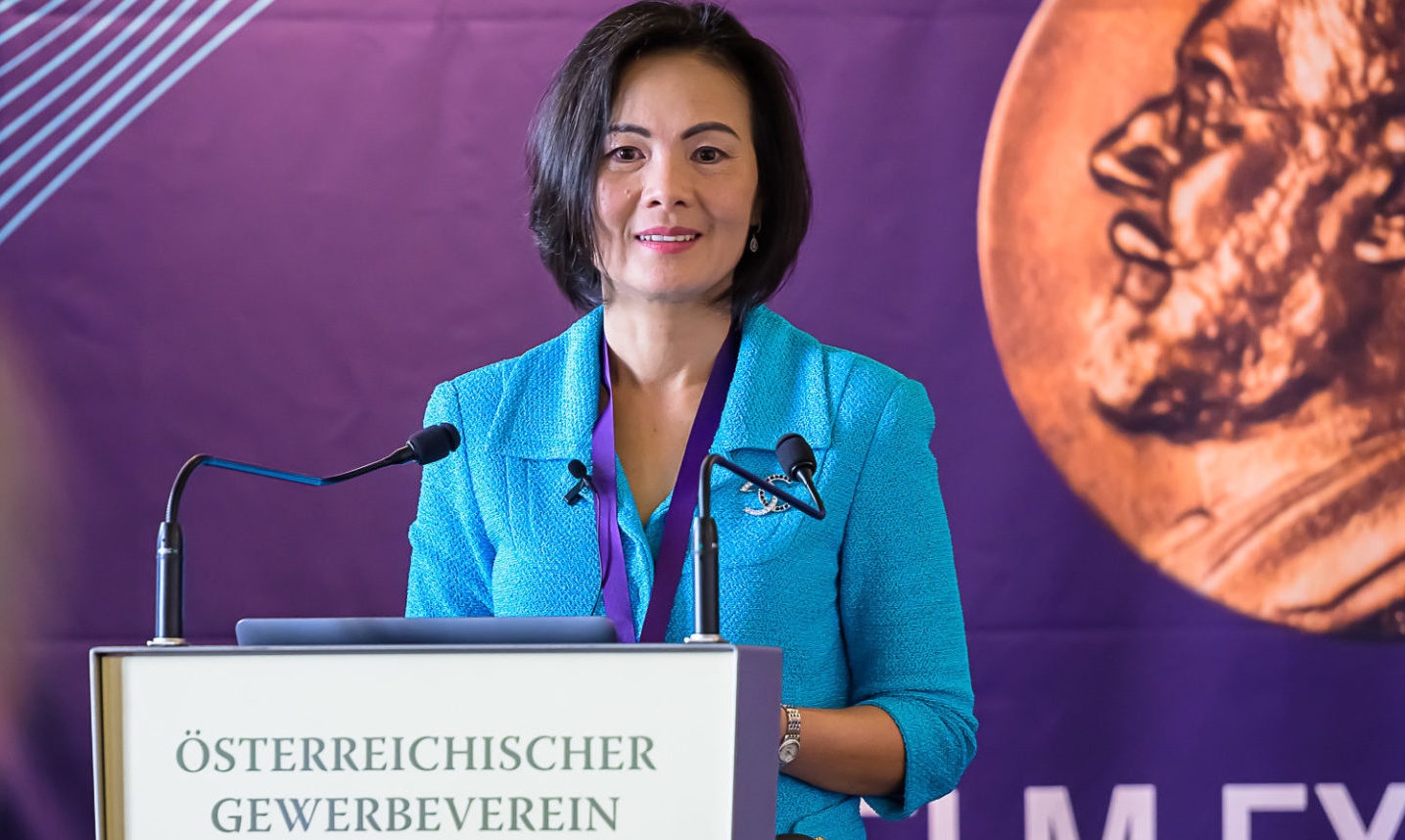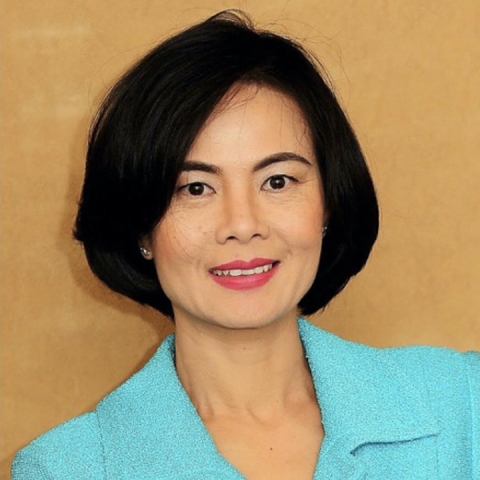Professor Thuc-Quyen Nguyen receives double honors for her work on organic photovoltaics

Society needs novel materials to overcome challenges like pollution, climate change and poverty. Chemist Thuc-Quyen Nguyen aims to deliver, and her efforts have been noticed.
Nguyen, a professor in UC Santa Barbara’s Department of Chemistry and Biochemistry, has been honored with the de Gennes Prize by the Royal Society of Chemistry. The society cited her “seminal contributions to the development of organic semiconducting materials and device physics of organic photovoltaics to mitigate climate change.” The award comes with a grant and an invitation to speak at universities across the United Kingdom and Ireland.
Nguyen has also been awarded the Wilhelm Exner Medal by the Wilhelm Exner Foundation of the Austrian Trade Association. The distinction recognizes an individual whose discoveries have “directly or indirectly promoted the economy in an outstanding way.”
“I am deeply honored and humbled to receive the Exner Medal from the Exner Foundation and the De Gennes Prize from the Royal Society of Chemistry,” said Nguyen, director of the campus’s Center for Polymers and Organic Solids. “These honors mark an exciting career milestone not only for me, but for my entire research team. I sincerely thank the nominators and the Exner Foundation and the Royal Society of Chemistry for the recognition. I am grateful for the support from UCSB, colleagues and collaborators.”
“I extend hearty congratulations to Thuc-Quyen Nguyen on both of these honors,” said Pierre Wiltzius, Susan and Bruce Worster Dean of Science. “She is most deserving of these professional distinctions, which recognize not only the advancements she has made to her field, but the broad impacts of her work on society at large. We take great pride in calling her one of our esteemed faculty.”
Nguyen’s research centers on organic semiconductor materials. A guiding question is how we can make better organic photovoltaics (OPVs) in terms of higher efficiency, longer lifespan and lower environmental impact. To achieve this, her group studies the relationship between structure, function, properties and performance of organic semiconducting materials. Her research has developed innovative methods to gain insight into the physics of OPVs.
“These carbon-based materials are expected to form the basis of completely new technologies — sometimes called the Organic Electronics Revolution — in which complex electronic function is produced by simple printing techniques, such as roll-to-roll coating or ink-jet printing,” Nguyen said.
For instance, OPVs convert sunlight into electricity. Most commercial photovoltaics use silicon wafers, made at very high temperatures in a cleanroom environment. Nguyen’s group makes organic photovoltaics using carbon-based materials processed from chemical solutions at room temperature. OPVs are 1,000 times thinner than silicon solar cells and can be made into different sizes, shapes and colors, semi-transparent, light-weight and flexible.
“OPVs are ideal solutions to reduce the carbon footprint of skyscrapers and high-rise buildings,” Nguyen said. “They can be wrapped around the exteriors of buildings or coat glass windows and greenhouses to generate energy.”
Nguyen’s group has developed materials, processing protocols and characterization methods to help advance OPVs and organic electronics in general. “Our work has impacted both basic and applied research,” she said. The group also develops materials for organic photodetectors, transistors, LEDs and biosensors.
Three of her former group members now lead Next Energy Technologies, a startup that develops OPVs coated glass windows and walls coated with OPVs and walls to help power buildings.
The honors are more than academic for Nguyen. “I grew up in villages in Vietnam,” she said, “that lacked all basic needs such as clean water, electricity, food.” She immigrated to the United States with her family at age 21 with only a few words of English and no money. But every setback and hurdle motivated her to try harder. “These honors are not only for me, but also for many women — especially those in Vietnam and developing countries — whose education or career dreams were shattered by life challenges.” She hopes that her story helps inspire young students, especially those from developing countries.
“Honors come with responsibilities,” she continued. “I am grateful for the recognition and opportunity, and I look forward to working with other members of the Exner Foundation and the RSC to make meaningful and impactful changes to the global scientific community and to society.”
Harrison Tasoff
Science Writer
(805) 893-7220
harrisontasoff@ucsb.edu




